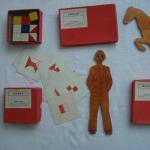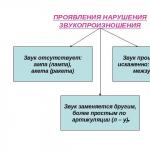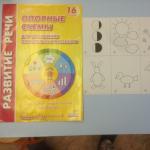3 year old not talking
Every child is a person who develops at a strictly individual pace. This indisputable truth also applies to speech development, since one peanut pours words at the age of one and a half, and the other is silent at four years old, like an owl. However, there are certain age norms by which one can judge how much the baby is behind or ahead of his peers. For example, another three-year-old is able to build speech chains using various parts of speech. But this does not happen with all children, which is why today we will talk about what worries many parents: a child of 3 years old does not talk, does not keep up the conversation.
How does speech normally develop?
Experts have identified several normative periods of speech formation, by which one can judge how this higher mental function develops in a child. If the crumbs have any problems with language skills, you need to remember how accurately he went through the steps below:
8 weeks - the baby intonationally expresses joy and discontent;
3 months - humming and repetition of some sounds appear;
5 months - the baby begins to repeat syllables;
12 months - the first words appear in children's speech;
24 months - a small talker pronounces a sentence of two or three words;
2, 5 years old - the time of the appearance of numerous questions;
3 years - the child has a dictionary of 300-500 words, builds phrases that consist of various parts of speech, includes prepositions in sentences;
4 years - the baby speaks an understandable adult language.
Of course, these data are averages, but they should not be ignored either, since comparison with such indicators allows us to talk about approximate compliance with age norms.
As for the age of three, mom and dad already control the behavior of the child with speech, and not with sign language or short words (“give”, “bring”, “cat”). Now parents can give their baby two-syllable instructions. For example, “First, take off your blouse, and then your trousers.”
Again, normally a three-year-old should already understand the simple speech of the people around him. But intelligible pronunciation is not always formed precisely at this age, since it is possible if the peripheral speech apparatus is sufficiently developed, including the respiratory organs, teeth, tongue, soft palate, etc.
If the child does not speak at the age of 3, it is necessary to contact specialists, establish the cause of speech underdevelopment and choose the right tactics for working with the baby. After all, the delay threatens with a serious lag of children from their peers. And the older the child, the more difficult it is to catch up.
Why is the child not talking?
Some "malfunctions" in physical and psychological development proceed completely unnoticed by parents and are detected only during a routine medical examination. If parents notice a lag in the development of language skills, a visit to a neurologist is a must. A narrow specialist will establish the exact reasons for the unwillingness or inability of the child to communicate.
The further formation of speech functions is greatly influenced by multiple physiological factors, which, moreover, can also be combined. Among the common causes of underdevelopment of speech are the following:
Lack of oxygen during the entire period of bearing a baby or asphyxia during childbirth;
Prematurity or, on the contrary, post-term pregnancy (in the first case, the brain zones are not sufficiently formed, in the second, there may be problems during childbirth due to the large mass of the child);
Complicated labor activity;
Taking any serious medications that negatively affected the development of the main organ systems in the fetus (drugs in the first trimester are especially dangerous);
Pathology of the hearing organs - speech and hearing are closely related to each other, so language skills are often delayed due to problems with sound perception.
One cannot deny the possibility of so-called social deprivation (failure to satisfy vital needs). If a child is left to himself from the first weeks of life, then speech skills do not develop due to a lack of communication and incentives for communication.
Some parents devote time only to caring for the little one, not particularly touching on the psychological aspect. For example, work, personal problems come to the fore, and the baby gets, at best, communication with the TV. However, at an early age, when speech develops at a gigantic pace, such an attitude is simply unacceptable.
(advertising2)
What to do if the child does not speak at 3 years old?
First of all, in order for the little one to babble on time, and even more so to want to communicate, it is necessary from the very beginning of life to form precise motor skills - namely, pens and fingers. Scientists have long proven that motor skills are closely related to speech skills.
Experienced specialists are able to "identify" a non-speaking child by a very simple test with the conditional name "Show the finger." The little one is offered to show first one finger, then two or three, demonstrating a sample. If the fingers move in isolation, then we can first talk about normal development, if difficulties arise (tense fingers or excessively sluggish ones), pronounced speech disorders are suggested.
That is why mothers who are faced with such a problem as a child who cannot or does not want to speak should understand that, first of all, it is important to work on improving fine motor skills and strive for dexterity and coordination in the work of fingers. This will be an excellent foundation for the successful development of speech.
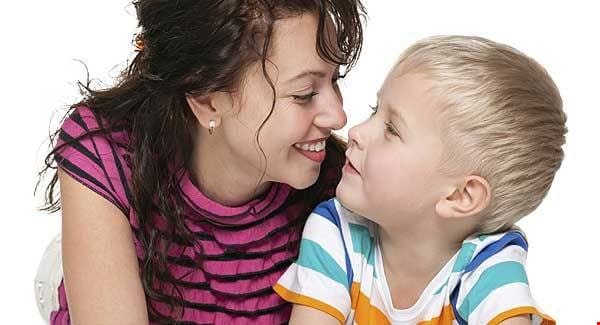
As an example, here are the most common activities that parents can do without special education and skills:
Finger games and gymnastics (already from six months and even earlier), associated with reading short rhymes and nursery rhymes; Mandatory massage of the handles and each finger separately;
Training in fastening and unfastening various fasteners - buttons, zippers, Velcro, lacing;
Stringing large beads, pasta on a fishing line or string;
Sorting and sorting beans, other grains;
Fun with different liners;
Tearing pieces of paper or ordinary newspaper sheets with fingers;
Games with plasticine or soft dough.
As you can see, the implementation of such games does not require any additional costs, all that is needed is the desire of the mother to speed up the child's development. Fingers are actively involved in all of these entertainments. However, it is important to understand that all fun with small items should take place under strict parental control.
Here we deliberately do not touch on the medical aspects of speech development, since serious language difficulties at an early age ALWAYS drag along or are the result of other psychophysical problems, up to mental retardation. Therefore, it is extremely important to pass a commission consisting of several specialists who will prompt specific steps. In some situations, medication is required!
Most likely, you have heard and read all of the following more than once, but it is necessary to repeat the recommendations of experts. So, what do speech therapists, neurologists, psychotherapists and defectologists advise to speed up the speech development of a non-speaking three-year-old? Your actions may be as follows:
1. Communicate with the little one as often as possible. As you walk through the park, explain every change in the weather and environment. During cooking, talk about your every step, the sequence of actions.
2. Your words should be as clear and precise as possible. Formulate sentences correctly, speak slowly, "minting" each syllable. Observe pauses and gaps between sentences. And do without sussyukany. Be sure to ask your child questions that require a detailed answer.
3. Give up excessively frequent TV viewing, even if there are developing programs. For any toddler, lively emotional speech is extremely important, and for a non-speaking person, it is doubly or triple necessary. Therefore, read fairy tales, sing funny songs, encouraging the baby to join you.
4. Do not rush to finish a verse or story familiar to the child - saying the beginning of a line or sentence, invite him to say the end. Be sure to look at pictures and images in books, asking them to name the animal or object depicted in them.
5. You don’t need to fulfill every request of a three-year-old, accompanied by the same gesture. Try to achieve a voiced petition, otherwise you will never achieve the desire to speak. What for? After all, mommy does it all.
6. Do not forget, of course, about finger games. If there are problems with the peripheral speech apparatus (for example, malocclusion), try doing myogymnastics. The easiest way is the "kiss" when the baby stretches his lips and smacks.
7. Be sure to work with natural materials. It can be picking up figurines from stones, cones, carving from vegetables. The sense of touch is extremely important for the formation of language skills.
By the way, children who go to kindergarten begin to develop faster. This is due to “dipping” into the language environment - the child is simply forced to interact with peers, and the reason for this is the separation from the mother, who previously understood her silent toddler from a half-word and half-hint.
Toys for a non-speaking child
The formation of speech and mental skills is extremely difficult to imagine without objective activity, that is, without interaction with toys. Even seemingly ordinary and unremarkable rattles in infancy play an important role - the development of auditory perception.
For a child up to a year old, cubes made of various materials (fabric, wooden, plastic), pyramids are also suitable, musical instruments are also required - whistles, pipes and a drum. All of them form sound perception, tactile sensations and fine motor skills.
It is already quite possible for a one-year-old baby to provide a safe watercolor and offer to depict something unusual. Yes, these will be ordinary scribbles, but made by children's fingers, without the help of adults, that is, independence develops along the way.
Three-year-olds usually like to draw, lay out puzzles, collect patterns from mosaics, and design. It's a good idea to get an electronic toy that you need to repeat some words. However, you need to play it little by little, since live communication with moms cannot be replaced by any “cool” gadget.
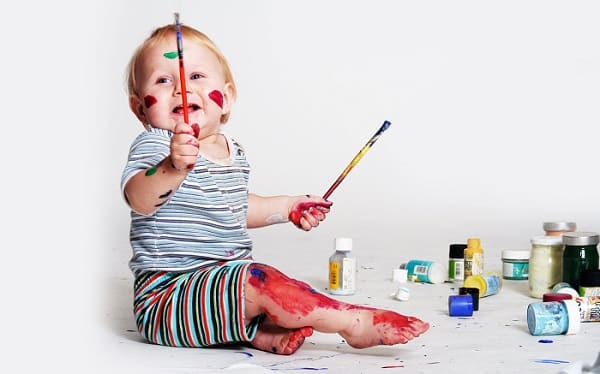
If the child does not speak at 3 years old, you do not need to wait until everything “settles down”, but you should immediately contact the doctors. Yes, each toddler develops at his own pace, different from other children, but even if your alarm turns out to be false, you just make sure that everything is fine and get recommendations on how to encourage the child to communicate. If any deviation is found, then treatment and targeted exercises should be started immediately. And by following our advice, you will help your silent person speak more quickly and catch up with their peers who are already chatting with might and main.

